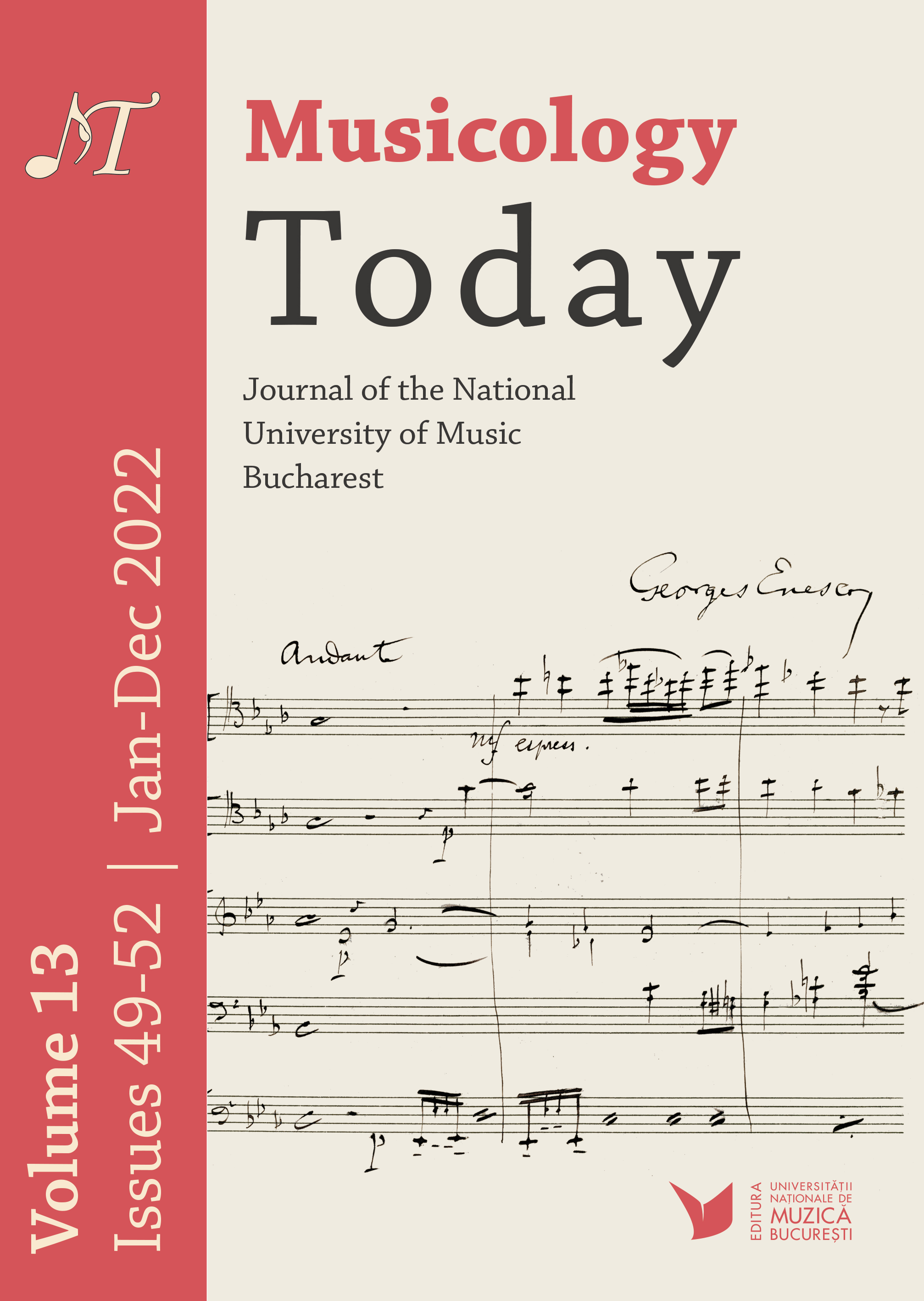Musical Thinking and Aesthetic Reception during Modernity: Between the Project of Searching after the Origins of Art and the Project of Transgressing Art Itself
Musical Thinking and Aesthetic Reception during Modernity: Between the Project of Searching after the Origins of Art and the Project of Transgressing Art Itself
Author(s): Andreea StoicescuSubject(s): Cultural history, Customs / Folklore, Music, Aesthetics, History of Art
Published by: Editura Universității Naționale de Muzică din București
Keywords: (philosophy of) history; constellation (method); (extreme) nationalism; folklore; organism (as metaphor); avant-garde art; Gustav Mahler; Arnold Schönberg; Pierre Boulez;
Summary/Abstract: My study is an attempt to philosophically account for the competing influence in the 20th century musical understanding and practice of two radical and opposed aesthetics: the ideal of transgressive art (defined by Anthony Julius) associated with the avant-garde and the ideal of recovering the original and authentic art associated with extreme nationalism. My thesis is that these perspectives, under their extreme formulations, are, in fact, kindred sides of the broader philosophy of Modernity as developed since the Enlightenment. Also, as a consequence, by deconstructing the historical meaning and justification of these aesthetic forms of radicalism, one can reinterpret the artistic profiles of personalities such as Arnold Schönberg, thought of either as a revolutionary who totally rebelled against the musical past (as Theodor W. Adorno considered), or as not revolutionary enough (as Pierre Boulez thought). My historical methodology is based on using the two key-terms, “originality” and “transgression”, as regulative concepts within the constellation (a concept proposed by Theodor Adorno in Negative Dialectics) of musical modernism. Thereby, I will show how these key-terms are connected to a network of other romantic concepts: organism, authenticity, aura (Walter Benjamin’s sense), integrity, folklore, and contemplation, in order to reveal how the structural and social meaning ascribed to this set of concepts greatly influenced the process of redefining musical thinking and musical reception. The main philosophies I will use as conceptual landmarks to clarify these interconnections are Martin Heidegger’s remarks about the work of art and Theodor Adorno’s critique of Heideggerian terminology and presuppositions. My overall conclusion will point towards the necessity of going beyond such radical modern oppositions with the aim of finding new types of theoretical principles and perspectives, more adequate as conceptual tools for dealing with contemporary artistic realities.
Journal: Musicology Today: Journal of the National University of Music Bucharest
- Issue Year: 13/2022
- Issue No: 49
- Page Range: 51-84
- Page Count: 35
- Language: English

